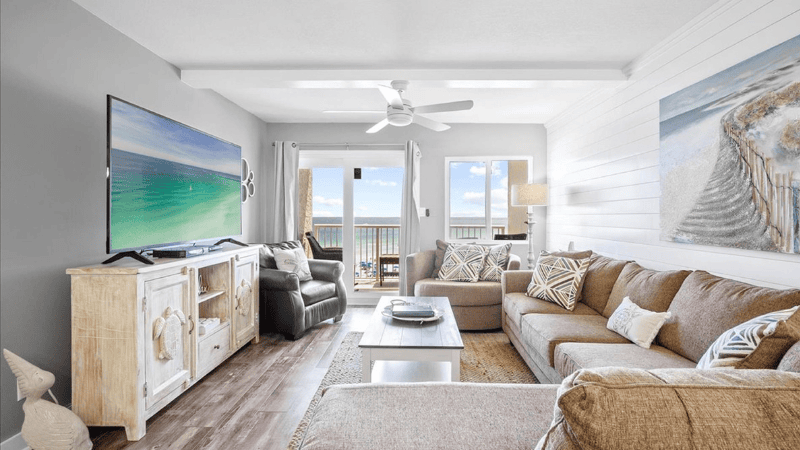One of the most common questions new investors ask is, “Should I put my rental property in an LLC?” And the answer is: it depends on your goals, risk profile, and financing strategy.
Forming a Limited Liability Company (LLC) can offer significant benefits—especially in terms of asset protection, tax flexibility, and portfolio scaling. But there are also some trade-offs, particularly when it comes to financing and administrative costs.
In this guide, we’ll break down the key pros and cons so you can decide if investing through an LLC is the right move for your real estate strategy.
What Is an LLC?
An LLC (Limited Liability Company) is a legal business structure that separates your personal assets from your business operations. For real estate investors, it acts as a protective layer between you and potential lawsuits, tenant disputes, or property-related liabilities.
Many investors form an LLC to:
- Own and operate rental properties
- Limit personal liability
- Separate personal and business finances
- Simplify estate and partner structuring
Benefits of Using an LLC for Real Estate Investing
1. Liability Protection
If a tenant sues or a contractor gets injured on your property, your personal assets are protected—as long as the property is owned by your LLC and you maintain proper corporate formalities.
2. Tax Flexibility
LLCs are pass-through entities, meaning profits flow directly to your personal tax return, avoiding double taxation. You may also be eligible for the Qualified Business Income (QBI) deduction, which can reduce taxable income by up to 20%.
Advanced investors can even elect S-Corp status to minimize self-employment taxes when income increases.
3. Streamlined Portfolio Management
Own multiple properties? You can structure each in its own LLC or use a series LLC to compartmentalize risk and finances. This simplifies bookkeeping, financing, and partnership equity arrangements.
4. Professional Credibility
Using an LLC signals to lenders, partners, and contractors that you operate a legitimate investment business. It also allows you to build business credit and eventually qualify for entity-based financing, like DSCR loans.
5. Estate Planning and Asset Transfer
LLCs allow you to pass ownership via membership interests, making estate planning easier, especially for families or investors with partners.
Downsides of Using an LLC
1. Financing May Be Limited
Most traditional lenders prefer lending to individuals. If you’re buying a rental in an LLC, you’ll likely need:
- A DSCR loan or other investor-focused product
- To sign a personal guarantee
- A lender comfortable with entity-based underwriting
Conventional loans (Fannie/Freddie) typically require the property to be in your personal name.
2. Higher Closing and Legal Costs
You may face:
- Entity formation fees ($50–$800, depending on the state)
- Annual state filing or franchise taxes
- Additional attorney or CPA costs for setup
That said, the legal protection often outweighs the expense for serious investors.
3. Ongoing Compliance and Maintenance
LLCs require:
- Separate bank accounts
- Accurate books and records
- Proper entity upkeep (annual filings, minutes if applicable)
Failing to do so can lead to “piercing the corporate veil,” which negates the liability protection.
When to Use an LLC for Real Estate Investing
✅ You own or plan to own multiple rental properties
✅ You’re investing with partners or spouses
✅ You’re generating significant rental income
✅ You want to use DSCR loans or business financing
✅ You want to limit liability and structure long-term holdings
When You Might Wait
🚫 You’re house hacking or living in the property
🚫 You’re using conventional (Fannie/Freddie) financing
🚫 You only own one property and plan to self-manage
🚫 You don’t yet generate rental income or want to keep startup costs low
In these cases, you can start in your personal name and transfer to an LLC later—but be aware of potential due-on-sale clauses and closing costs when you do.
Real-World Example
Mark and Lisa started investing in small multifamily properties. After buying their first duplex in their personal names, they ran into insurance and tax complications. By property #3, they formed an LLC, opened a business bank account, and started financing with DSCR loans. Their CPA helped them elect S-Corp status once their rental income hit $100K/year—saving them thousands in taxes.
Final Thoughts
Forming an LLC for your real estate investments isn’t just about protecting your assets—it’s about treating your portfolio like a business from day one. It brings structure, scalability, and peace of mind.
If you plan to build a long-term portfolio, use creative financing like DSCR loans, or partner with others, an LLC is often the right move.
Our advise is based on experience in the mortgage industry and we are dedicated to helping you achieve your goal of owning a home. We may receive compensation from partner banks when you view mortgage rates listed on our website.


